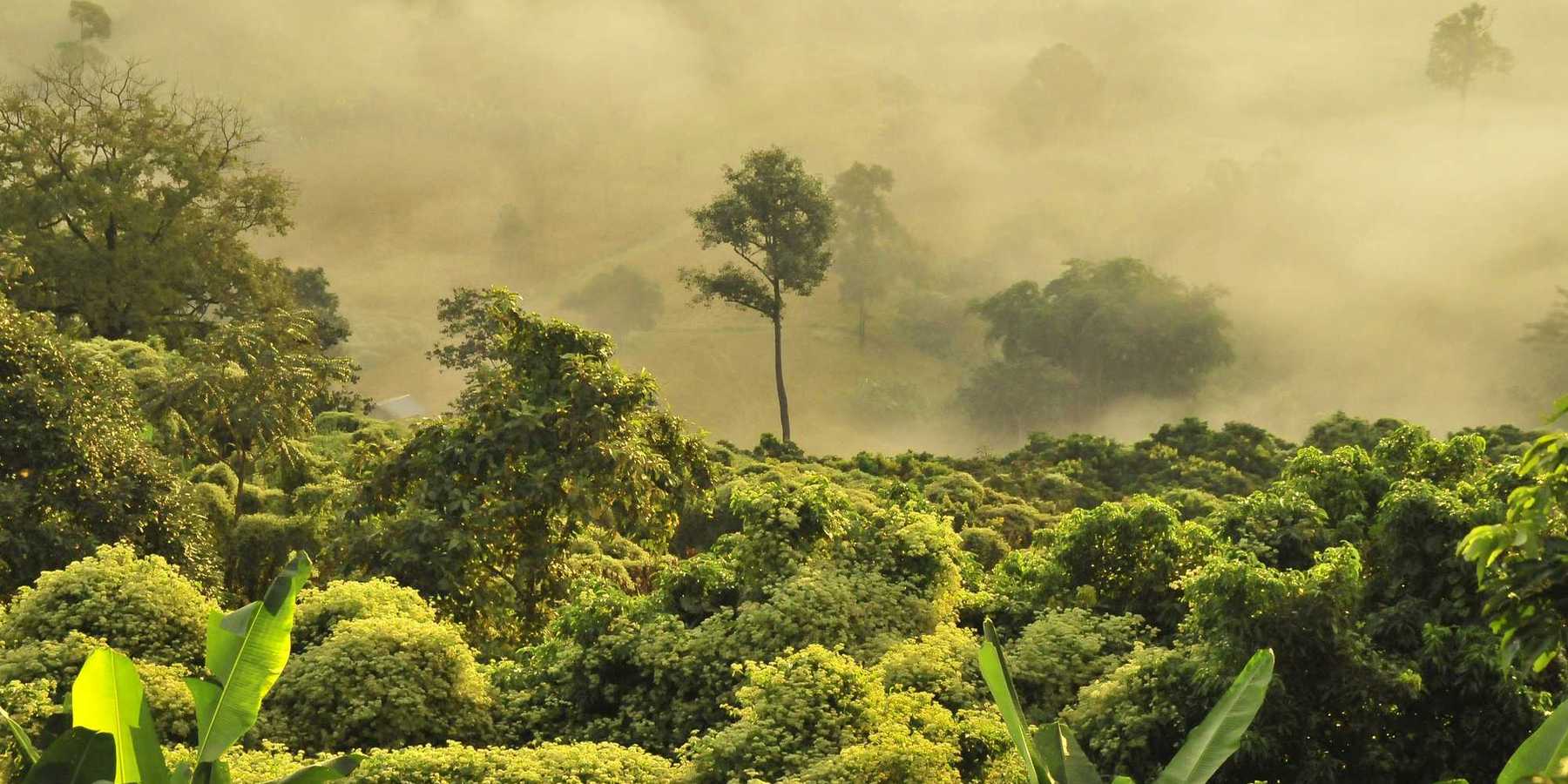Weekend Reader for Sunday, Nov. 26
Last week, the Commander-in-Chief met the national symbol, a recovering endangered species.
News and opinion from Thanksgiving week.
President Trump performed the pre-Thanksgiving ritual of pardoning two Thanksgiving turkeys. Meanwhile, his countrymen baked or fried and ate 50 million more. And thanks for modern genetics and chemicals, the turkeys are far, far bigger than they used to be.
With Congress taking a break and much of Washington on holiday, the environmental rollbacks slowed. But nuclear weapons worries spread beyond North Korea, with concerns that modernizing nuclear weapons would lead to a renewed arms race.
Two of the most interesting stories in this edition of the Weekend Reader are about institutional omerta -- the time-honored Mafia code of silence. In one, chemical giant Chemours has gone into silence about alleged drinking water contamination from a North Carolina factory complex. In the other, Russia's gone mum over apparent radiation leaks.
So much of our national media bandwidth is flowing in two directions: Legitimate, vital stories about healthcare, tax reform, sexual abuse, guns, collusion and North Korea. And childish stories about petty Twitter feuds between Donald Trump and sports figures or Gold Star families. That leaves little space on newscasts, websites, and front pages for the irreversible damage being done to environment and climate policy by Trump Administration rollbacks. Non-profit journalism is helping to level the playing field by speaking truth to power. Please remember Environmental Health News on Giving Tuesday, November 28. Thanks! -- Peter Dykstra
Top weekend news
Chemical company's response to water worries -- silence (Associated Press)
Spun off from DuPont Corp. two years ago, chemical giant Chemours goes into radio silence amid fears of drinking water contamination in North Carolina.
A radiation cloud, and a mystery, from Russia (New York Times)
When a container of radioactive waste exploded at the Mayak factory 60 years ago, in one of the worst accidents of the nuclear age, the episode was so shrouded in secrecy that even residents of nearby towns had little clue of the danger.
Monsanto says Mexico revokes permit to sell GMO soy in seven states (Reuters)
Monsanto Co said on Thursday that Mexico's agriculture sanitation authority SENASICA had revoked its permit to commercialize genetically modified soy in seven states, criticizing the decision as unjustified.
Susan Sarandon: "I thought Hillary was very dangerous. If she'd won, we'd be at war." (Guardian Q&A)
One gets the feeling that the Harvey Weinstein business simply isn't very interesting to Sarandon, that there are other causes – the Keystone pipeline, fracking, oil and gas money in politics – that she considers more urgent
Opinions and Editorials
Breathless in Delhi: A taste of environmental Armageddon (Brigid Delaney, Guardian)
It was 2am on Sunday in Delhi and a friend and I were traveling in a rickshaw, heading home from a party. It was a hellscape.
Wanted: Aggressive Lake Michigan protection (Chicago Tribune editorial)
Environmental activists and particularly Chicago's surfing community welcomed news this week that the city of Chicago is initiating legal action against a Lake Michigan polluter based in Indiana.
Should Virginia join the carbon trading club? (Richmond Times-Dispatch editorial)
Virginia has made some modest steps toward reducing total carbon emissions, but it could be doing more — and should. The question is how.
Keystone must deliver on its promises (Bismarck, ND Tribune)
The timing couldn't have been worse. Four days before Nebraska regulators were to vote on a route through the state for the Keystone XL oil pipeline the company reported an oil spill in South Dakota.
Is Trump changing on climate and the environment? (Springfield, MA Republican)
Massachusetts newspaper editorial offers hope -- or maybe wishful thinking.
President Donald Trump has been the worst nightmare of environmental advocates, but there are signs he is modifying his stance.
Living On Earth: Beyond the Headlines
This week in Beyond the Headlines, Peter Dykstra and host Steve Curwood discuss the rapid rise in people registering for federal disaster aid after this year's record-breaking hurricanes, wild fires and floods. Then they note how the Pope regards climate denial, and remember an infamous environmental computer hack.
This Week in Trump
With Congress out and Trump flying out to Mar-a-Lago, the focus has been on nasty-tweeting basketball parents and football stars. But there was still some rollback action in Washington.
Donald Trump's science office is a ghost town (CBS News)
Science and environment get the silent treatment in Trump Administration staffing.
Trump's EPA canceled funding for the Chesapeake Bay Journal (Buzzfeed)
After a political appointee took charge of EPA grants, the agency cut short a six-year, $1.95 million grant to a Pennsylvania newspaper covering the Chesapeake Bay. Now a fight is brewing.
Elephant advocate sue Trump Administration on trophy hunting (Reuters)
Conservation groups sued the U.S. government on Monday over a plan to allow hunters to bring home elephant and lion trophies from Zimbabwe, following changing statements about the possible move by President Donald Trump's administration.













